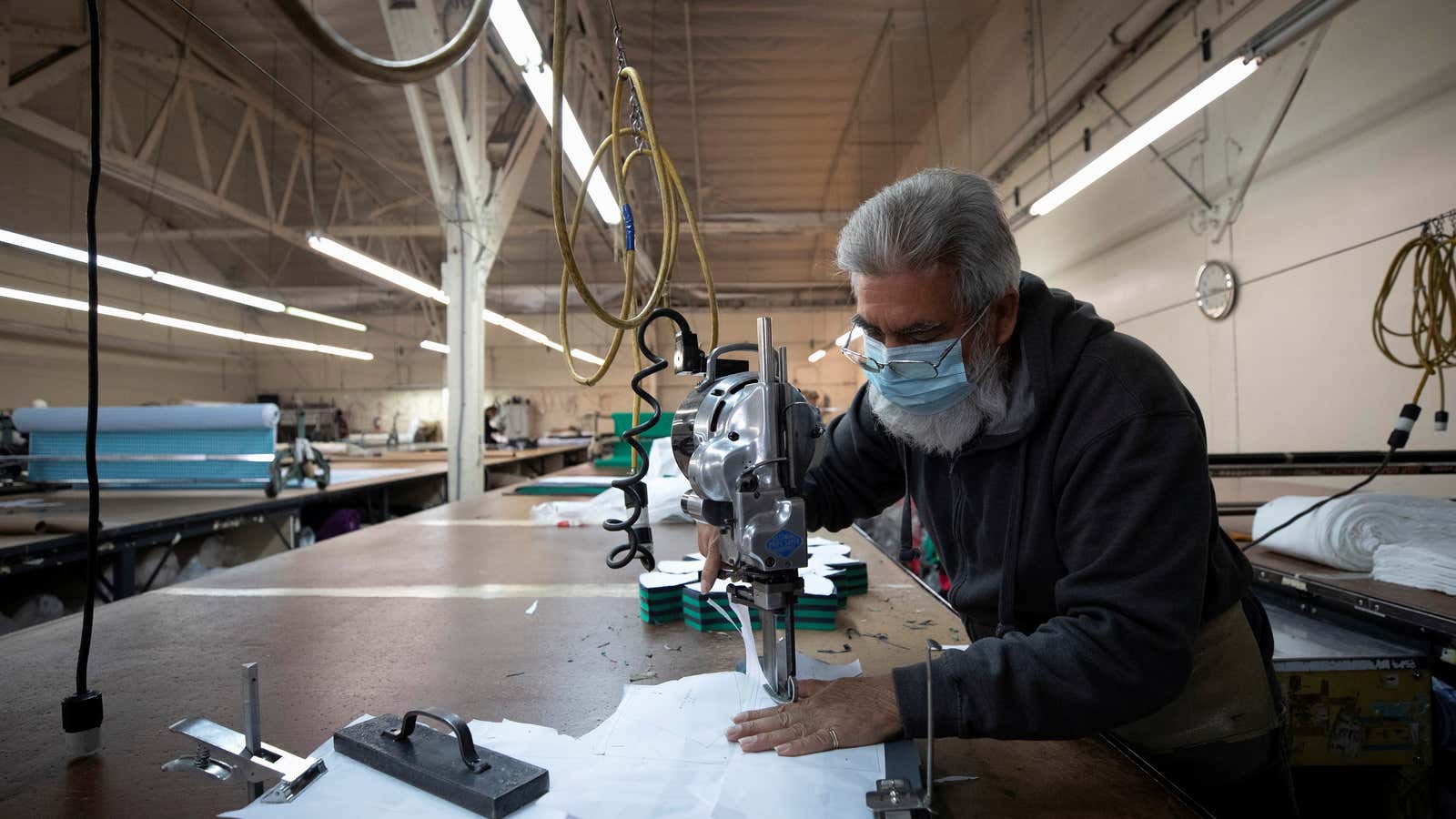Up until the late 1990s, the share of Americans working in their 70s never rose above 10%. But that figure steadily climbed in the past two decades, helped along by lengthier lifespans, an overall economic shift toward less physically demanding jobs, and household financial pressure from years of stagnant wages.
Now the trend seems to be unraveling.
Since February, the share of employed US adults 65 years has dropped by 16%, versus an 11% decline for all Americans 16 years and older, according to data from the US Bureau of Labor Statistics.
A study from the University of Chicago, which surveyed people before and after the Covid-19 pandemic began, found that among those who left the labor force, 60% claim to be retired in April versus 53% in January. Michael Weber, one of the study’s authors, says it’s “very unlikely” we’ll see a big bounce back in the employment to population ratio coming out of the recession.
That’s not to say older adults can necessarily afford to stop working. A Kaiser Family Foundation analysis found that the average earnings of those 65 and older was $49,100 in 2018—a sizable amount of income to forgo.
In a pandemic, older workers face new hurdles to working longer. Their increased risk for severe illness from Covid-19 makes them both less likely to want to return to the workplace and less likely to get new jobs.
A new working paper by researchers at Tulane University, circulated by the National Bureau of Economic Research, finds that this downturn has disproportionally affected older workers even more than in previous recessions.
To delay retirement, older workers often take “bridge jobs,” for example temporary positions in retail sales or work as administrative assistants or drivers. But in a public health crisis, these jobs often involve more contact or can’t be done remotely, which might dissuade older people from taking on the work, says Patrick Button, an assistant economics professor at Tulane.
Older workers also may face more age discrimination in hiring now. It’s a perennial problem of course, but it’s likely exacerbated by assumptions that older workers will be more susceptible to health problems stemming from Covid-19, Button says.
Button also notes that women have been hit harder by the Covid-19 economic crisis; he says this holds in older age brackets as well, as older women are more likely to be widowed and already face higher poverty rates than men.
It’s worth noting that the downturn is hitting both ends of the age spectrum–young Americans are also being disproportionately impacted. This group may experience lasting disadvantages in the labor market, such as being stuck in lower-level, lower-wage jobs.
